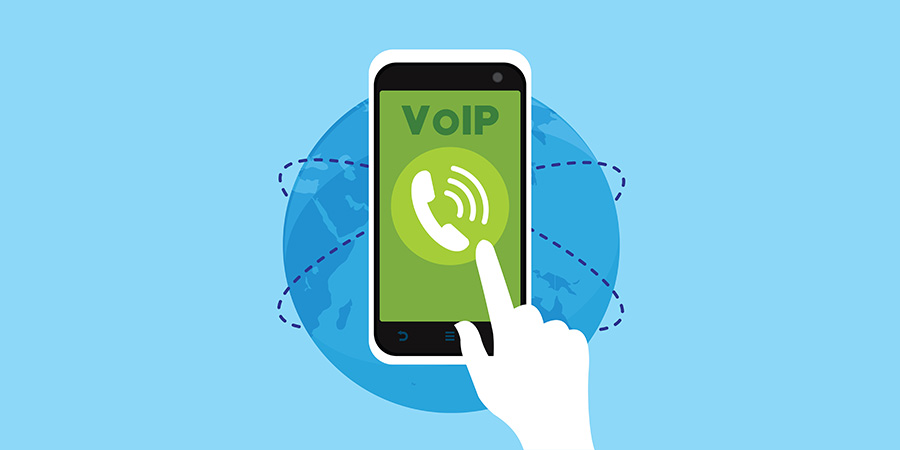Once again, the issue of Voice over Internet Protocol (VoIP) services is causing a stir in the UAE. Etisalat and EITC (du), the UAE's two telecommunications providers, announced in early January this year that access to the VoIP service Skype had been blocked. If VoIP services wish to operate in the UAE they should coordinate with the TRA and local providers instead of operating without compliance.
While it may be inconvenient for people that some VoIP services have been blocked in the UAE, it's important to remember that Voice over Internet Protocol isn't technically allowed in the country unless it's approved by a licensed provider. VoIP services carry risks related to privacy issues, voice phishing, and hacking, among other vulnerabilities that you can expect with any service connected to the internet.
WhatsApp calling, for example, is blocked in the UAE, because some consider it to be unsafe. Mohammed Mustafa Saidalavi, COO of Emirates Safer Internet Society, said he likes the idea of making free quality internet calls using VoIP, but "not at the cost of safety and security."
Saidalavi said, "As a security and online child protection expert, I have concerns about enabling free WhatsApp calls that are encrypted. I will not endorse any tools that will allow criminals and anti-social elements to use encrypted calls and messages."
Etisalat elaborated in a statement why Skype, which allows users to call for free on the internet, bypassing traditional service providers, has been blocked in the UAE: "The access to the Skype app is blocked since it is providing unlicensed Voice over Internet Protocol (VoIP) Service, which falls under the classification of prohibited as per the United Arab Emirates' Regulatory Framework."
The definition of VoIP often causes confusion. Sometimes it is used to refer to a transmission and routing technology and at other times to a service offered over one of a number of different types of related technologies. Moreover, VoIP is often used interchangeably with other terms such "Internet Telephony". Such confusion in the exact meaning and import of the term VoIP often confuses the policy debate.
If VoIP services want to operate in the UAE they should coordinate with the Telecommunications Regulatory Authority (TRA) and gain the proper compliance. The TRA maintains that "VoIP services are still a prerogative of the licensed providers who reserve the right to provide such services through their networks. Companies wishing to offer services must coordinate with the licensed telecom providers in the UAE."
The TRA VoIP Regulatory Policy Version 2.0 says "while such technologies may bring some short-term advantages to consumers, if they are introduced and allowed to be provided on an unregulated basis at too early a stage in the development of a liberalizing regime, they can in fact be counterproductive as regards consumer interests, and retard the process of introducing sustainable and meaningful competition."
The TRA has said it has no problem with having VoIP in the country as long as it goes through the proper channels. Hamad Al Mansoori, director general of TRA, said the organization has a framework through which "any company can provide VoIP provided they can agree with the telecom providers of these services." Any person using VoIP services which are not provided by a licensed provider, the TRA says on its website, "may be committing a criminal offence."
With unlicensed VoIP services like Skype now blocked in the UAE, residents are being urged to use legal alternatives to make video calls. For example, Etisalat announced that subscribers can make unlimited video calls by paying a fixed monthly rate of AED 50 using C'Me and BOTIM, apps which are available for both iOS and Android devices.
Etisalat said in a statement that its internet calling plans "are available to Etisalat subscribers (prepaid, postpaid and e-Life home broadband)." For mobile subscribers, the voice and video services can be accessed while on the move at a fixed monthly charge of AED 50. Etisalat's eLife subscribers can also make voice and video calls from their home at a rate of AED 100 per months.
"Upon subscribing to the internet calling plans, Etisalat subscribers will enjoy unlimited video and voice calls to their family and friends who have downloaded the same app [C'ME or BOTIM] located anywhere in the world," Etisalat said. "There will be no extra charges as long as Etisalat customers have an active internet connection (home broadband or mobile data) to use with this service."
Etisalat added, "Currently, C'ME and BOTIM meet the UAE regulatory framework requirements to offer VoIP calling in the UAE." If Skype wishes to operate in the UAE then it will need to coordinate with Etisalat and EITC and meet the same requirements as C'ME and BOTIM.
EITC offers a similar internet calling package at the same price using BOTIM and C'Me, according to the du website. EITC said in an earlier statement that there "has been no changes in the VoIP policy followed in the UAE" and encouraged users to adopt its internet calling services.









